- Home
- Bette Lee Crosby
Beyond the Carousel Page 15
Beyond the Carousel Read online
Page 15
When Emory hung up the telephone, he paced back and forth across the living room. All along he’d thought Christine would spend a year or two in Richmond, have her fun, then return to Wyattsville. He expected she’d marry one of the local fellows and, like her mama, live somewhere within walking distance.
This Richmond fellow changed everything.
He was working himself into a state of anger when he remembered Rose’s words.
“Don’t be so judgmental,” she’d said when he’d voiced the exact same complaints about Franklin.
He’d listened to her warning, and as it turned out Franklin was more than a good husband. He’d been a great husband. He’d been a friend, somebody Emory could respect. An equal.
Emory didn’t have the same high hopes for this Jack Mahoney, but he’d wait and give the lad a chance to prove himself.
The Dinner Party
On the Saturday of the dinner party, Emory was up before dawn. He pulled the dark suit he used to wear for work from the back of the closet and packed it into a bag along with a crisp white shirt and red tie. His car was already gassed up and ready to go. He took one last look in the mirror, fingered the edge of his beard then walked out and closed the door behind him.
The drive to Richmond was a good four hours, more if there was traffic. Emory drove slowly with thoughts of Jack Mahoney needling him. He’d told himself not to be judgmental, but saying it was considerably easier than doing it.
As far as he was concerned, Mahoney already had a number of strikes against him. Christine was too young. The boy hadn’t sought his permission before proposing marriage. It was insulting to assume he couldn’t pay for his own hotel room.
In comparing thoughts of Jack Mahoney to his memories of Franklin, the lad fell short. Way short. Being a policeman was not the same as being a stockbroker. A policeman could end up dead, and then what? Like Laura, Christine would be left a widow. She’d face a life of loneliness just as her mama did. Didn’t his granddaughter deserve better?
Emory arrived at the Algonquin Hotel a few minutes before two, parked his car in the small lot behind the building and walked in carrying one small suitcase. At the registration desk, the girl smiled and handed him the note Christine had left. He recognized the handwriting but didn’t open the envelope until he got to his room.
“Call me when you get in,” she’d written, “and I’ll hurry on over so we can spend some time visiting before dinner.”
He lifted the telephone and gave the operator Christine’s number. She answered on the first ring.
“Are you here, Granddaddy?” she asked.
Her voice had the sound of happiness woven through it. Emory found that in itself a bit grating. It was as if she was moving ahead without waiting for his approval.
“I’m here,” he replied sullenly.
“I’ll be there in fifteen minutes,” she said and hung up the receiver.
When Christine arrived at the hotel she looked around the lobby, half-expecting Emory to be downstairs waiting for her. Not seeing him, she went to his room, rapped on the door and called, “Granddaddy, are you there?”
“Coming,” he called back.
The minute he opened the door, she threw her arms around his neck and kissed his cheek.
“I’ve missed you so much,” she said.
Still burdened by the thoughts he’d had on the drive over, he tugged himself free and turned back into the room.
“I guess you didn’t miss me that much, or you’d have come for a visit.”
She followed at his heels. “I’ve been busy with my new job.”
“Is it the job or this Mahoney fellow that keeps you so busy?”
Christine gave a sigh of exasperation. “Oh, Granddaddy, let’s not argue at a time like this. We’ve got so much to be happy about…”
She told of what a wonderful evening it was going to be, but by then Emory’s thoughts had drifted off. In his mind there was little to be happy about. Christine was the last of his family, and now he was losing her just as he’d lost Laura, Rose and Franklin. How could a man left with nothing be happy?
A sense of melancholy settled over him like a black cloak, but Christine failed to notice. She took his arm, guided him out of the room and down through the elegantly decorated lobby.
“We’ll take a walk together,” she said and pushed through the glass doors leading to the street.
As they walked, she pointed out one thing after another.
“Here’s the Brown Bean. It’s where Jack and I had our first sort-of date. It was only a coffee break, but even then I knew. And that tall building is the Southern Atlantic Telephone Company where I work. Jack sits on that bench across the street and waits for me every night.”
Emory gave a nod to one thing and another but said nothing. He found the mere mention of Jack Mahoney grating on his nerves.
As they passed the Federated Bank building, Christine looked up at the big clock.
“Oh, my goodness,” she said. “It’s almost six. We need to get going; Jack will be waiting for us.”
Emory slowed his steps and stopped to look in three different shop windows as they headed back.
Jack was sitting in the lobby when they arrived. He spotted Christine at a distance, then stood and walked toward them. As he neared Emory, he broke into a wide smile.
“You must be Christine’s granddaddy.”
He stuck out his arm, grabbed Emory’s hand and pumped it vigorously.
“It’s a pleasure, Mister Hawthorne,” he said. “A true pleasure.”
“Same,” Emory replied without changing his sour expression.
Jack had been forewarned that Emory could be “a bit difficult,” as Christine had so tactfully phrased it, but he was determined. He asked if Emory had a pleasant trip, if the room was to his liking and if he had a preference for beef or chicken.
“Both are good here,” Jack said. “I personally prefer the Beef Wellington. It’s the best you’ll ever taste.”
“Think I’ll stay with chicken,” Emory replied.
This was proving more difficult than Jack thought. He nervously eyed his watch then glanced toward the front entrance.
Emory gave a scornful look. “Have you got someplace else to be?”
“No,” Jack said, “not at all. I’m just keeping an eye out for my parents.”
Moments later his mama came through the door.
“Ah, here they are now.”
Jack hurried over to greet them. As he brushed a kiss across his mama’s cheek, he whispered a word of warning.
“Please be patient with Mister Hawthorne. I don’t think he’s too happy about Christine and me getting engaged.”
Irene Mahoney laughed. “Nonsense. Why would he not—”
Having never met Christine or her granddaddy before, Irene was on top of them before she realized it.
“Mom, Dad,” Jack said, “this is Emory Hawthorne, Christine’s granddaddy.” He then turned to Emory. “Mister Hawthorne, my parents, Irene and Frank Mahoney.”
Irene flashed a smile wider than Jack’s.
“A pleasure,” Frank said.
“Same,” Emory repeated, not changing his stone-faced expression.
Jack felt a fluttering sensation in his stomach and reached into his pocket for the packet of antacids he carried.
“Why don’t we go in to dinner?” he suggested.
Walking behind everyone else, he popped a tablet into his mouth.
As they gathered at the table, Christine leaned over and whispered in Emory’s ear.
“Granddaddy, be nice.”
“You don’t have to tell me that,” Emory replied.
His words were louder than they should have been, and Christine gave an apologetic shrug. Trying to move past the awkwardness of the moment, she began talking about an early spring wedding.
“We’re thinking March or maybe April,” she said. “Granddaddy, is that okay with you?”
“It’s a little late to
be asking my opinion,” he answered.
“Granddaddy!” Christine’s voice had a disapproving chord threaded through it. “I’m asking because I want you to give me away.”
“Give you away? Why would I—”
Emory stopped mid-sentence and thought back on when Franklin had come to him and asked for Laura’s hand in marriage. That was how it was supposed to be done. With Franklin it was man to man. They’d spoken honestly, and he’d been upfront about it. There was no slipping behind his back and deciding to get married before permission had been granted.
“Spring’s fine,” Emory said.
By then he’d decided he wasn’t all that hungry and pushed his plate back.
Once the dinner was over and everyone stood to leave, Jack breathed a sigh of relief. It hadn’t been amicable but at least there had been no harsh words, no flaring tempers, and for now that was enough. He said goodbye to his parents as Christine walked her granddaddy back to the elevator.
“For my sake, please try to be nice to Jack,” she said as she hugged Emory. “Give him a chance. I’m sure you’ll love him when you get to know him.”
“We’ll see,” he said doubtfully.
“Promise me you’ll try,” she urged. “Jack and I will be back at nine tomorrow morning, and we’ll all go to church together. Afterward we can go to the Brown Bean. They have the best pancakes ever.”
Emory stepped into the elevator, and as the doors slid closed Christine gave him one last smile and mouthed the word, “Please.”
Emory
There’s an unfairness to life that, for the love of me, I simply can’t understand. Is it wrong for a man to want to protect his family?
I’d like to be happy for Christine, but I’ve got a truckload of worries on my mind. Granted, some of them are selfish in that I was hoping she’d come back to Wyattsville and live close by. But beyond that, I’m concerned about her future.
I can see she looks at this Jack the same way Laura looked at Franklin, which is good and not good. The lad is a policeman for God’s sake. You’d be hard-pressed to find a job more dangerous than that.
I watched Laura spend the best years of her life mourning Franklin’s death; I don’t want to see Christine go through the same thing. Besides, she’s still so young. It would seem she ought to experience a bit more life before she settles down and starts having babies.
I know it should seem that way, but when a young woman is in love she’s blind to reality and deaf to reasoning.
Times like this I miss Rose something fierce. She had the kind of wisdom I seem to be lacking. She knew how to glide over the rough spots of life and settle into the comfortable places. If I could go back to those days when we’d sit in the parlor and talk, I’d do it in a heartbeat.
Unfortunately, life is what it is. We don’t get to relive the part we enjoyed most.
In the letter Laura left, she said Christine and I should both find a life of our own. Maybe the reason I’m so angry about Christine marrying Jack is that she’s found that life, and I haven’t.
It’s a hard thing to do, but I’m going to have to put my pride and selfishness aside and be happy for Christine. It’s either that or lose her for good, and that’s not something I’m willing to do.
The Elks Club
The next morning when Christine and Jack arrived at the hotel, Emory was waiting in the lobby.
“Good morning, Granddaddy,” she said and kissed his cheek.
Given Emory’s mood of the night before, Jack was uncertain what to do. He settled for a manly half-hug, which was somewhere between a handshake and a pat on the back.
“Good to see you again, Mister Hawthorne,” he said.
His tongue stumbled over the “Mister Hawthorne” part, but he was hesitant to try any anything more familiar.
“Morning,” Emory replied. While he didn’t look particularly happy, the crackle of tension that had been there the previous night was gone.
There was little conversation as they walked to church and then later from there to the Brown Bean. They settled into a booth with Jack and Christine on one side of the table and Emory on the other.
Sitting as they were facing Emory, Christine and Jack made a valiant attempt at small talk. They avoided anything controversial or subject to argument. He asked about the time it took to drive from Wyattsville, and she chatted about her job. After the orders were placed and coffee served Emory interrupted them, stating he had something to say.
“As you both know, I think Christine is too young to be getting married,” he said, “but I thought the same when Franklin asked me for Laura’s hand. I figured a girl her age couldn’t possibly know what love is, but I was wrong. The way Laura and Franklin felt about each other was something special.”
He let his eyes meet Christine’s. “It was the kind of love your grandma and I had.”
He hesitated a moment, blinked back the tears dampening his lashes then looked at both of them.
“Seeing you two together last night, I was reminded of Laura and Franklin. Back then Rose was there to save me from a foolish decision, and I’d like to think maybe some of her wisdom has rubbed off.”
“Granddaddy, are you saying—”
“Jack, if you can swear to me that you love Christine as much as I do,” Emory cut in, his voice a bit gruff, “you’ll have my blessing.”
“Oh, I do, sir,” Jack said. “I absolutely do!”
Christine reached across the table, took Emory’s hand in hers then bent and dropped a kiss into his palm.
“Thank you, Granddaddy,” she said.
“Don’t thank me,” he grumbled. “Thank your mama and grandma.”
* * *
On the drive home, Emory began thinking about his own life. Christine wasn’t coming back. She wasn’t going to live down the street or around the corner. She was going to live in Richmond. She and Jack both worked there; it was the sensible thing to do. Painful for him but sensible for them.
He thought about his lonely existence. At times the house seemed so quiet he could hear himself think. At night when he sat in the chair and leafed through the newspaper, there was no one to read to, no one to comment on an interesting article or challenge his biased opinion.
Back when he worked all day and came home weary he welcomed the relaxation of a quiet evening, but not now. Not when the daylight hours led to long nights of boredom. He thought about the countless times he had gone for nearly a week without speaking to anyone, the radio being the only other voice he heard.
One thought led to another, and before long he remembered Laura’s letter and her words. “Time for you to have a life of your own.” But after so many years of living a life built around his family, how was he to start one for himself?
As if he were flipping back the pages of a calendar, Emory ran through the years of his life. He tried to remember when he was last happy and what made him so. Of course there was Laura. She’d stepped into her mama’s shoes and would just as willingly listen as he read from the newspaper or stated his opinion on one thing or another.
He’d also gotten a certain amount of pleasure from doing the odd jobs that needed doing. He pictured himself painting the bedroom and putting a new door on the cellar, but once he thought it through he crossed those jobs off his list. There was no pleasure in doing something when no one was there to notice and say, “Well done.”
Then there had been the years when Laura worked at the steel factory and he’d kept a close eye on Christine’s comings and goings, making sure the boys she dated were not lotharios who would tarnish her reputation. Those had been good years, not only because of watching over Christine but also the victory gardens he tended. Every housewife on the block looked to him to stock their refrigerators with tomatoes, lettuce, cucumbers and…
Emory stopped there. He remembered how Harriett Winthrop used to invite him in for a cup of coffee, and they’d sit and talk for an hour. And the young wife in the grey house—Iris something or another�
��she’d brought lemonade to the garden and stayed, handing him the tools as he called for them.
Gardening was something that didn’t have to end when the war did. People still enjoyed those vegetables, but now they plunked down good money to buy them at Safeway or the farm stand out on Route 9. Was there a woman in the world who wouldn’t welcome a lovely garden in her backyard? He thought not.
Emory snapped on the car radio and twisted the dial. When he came to a station playing Across the Alley from the Alamo, he left it there and started singing along.
The day after he returned from Richmond, Emory went up and down the street asking whether people would be interested in having him plant a vegetable garden in their backyard.
“Free of charge,” he said.
The widow in the corner house claimed she was thinking of selling the place and didn’t want the backyard torn up. Two doors down, a mother of twins who were at that crawly stage said once the boys were four or five she might entertain such an idea, but for now her hands were full.
“You wouldn’t have to do a thing,” Emory replied, but by then one of the twins started squalling and she had to go see what was wrong.
Iris had moved away and a family called Johansson had moved in. Otto answered the door and when Emory explained what he wanted to do, Otto said he doubted that Hilda would go for such a thing. Instead he invited Emory in for a beer. Figuring he’d done enough for one day, Emory accepted.
Once they got to talking Emory discovered that Otto, like himself, was retired.
“You know that haberdashery on the far end of Broad?” Otto said. “Well, I used to own it. Last year my son-in-law bought me out.”
“No kidding.”
“God’s honest truth.” Otto gulped down a swig of beer and set the bottle back on the counter. “Retail’s tough. Long hours, and you’re on your feet all day.”

 Emily, Gone
Emily, Gone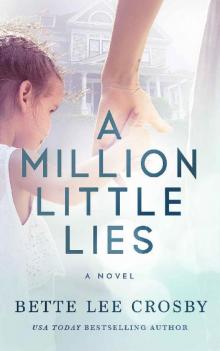 A Million Little Lies
A Million Little Lies Previously Loved Treasures
Previously Loved Treasures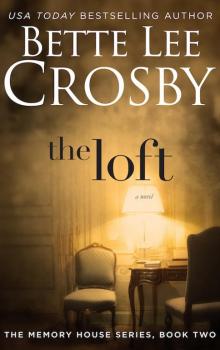 The Loft
The Loft Spare Change
Spare Change Memory House: Memory House Collection (Memory House Series Book 1)
Memory House: Memory House Collection (Memory House Series Book 1) Silver Threads
Silver Threads Wishing for Wonderful: The Serendipity Series, Book 3
Wishing for Wonderful: The Serendipity Series, Book 3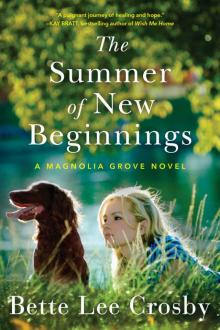 The Summer of New Beginnings: A Magnolia Grove Novel
The Summer of New Beginnings: A Magnolia Grove Novel The Regrets of Cyrus Dodd
The Regrets of Cyrus Dodd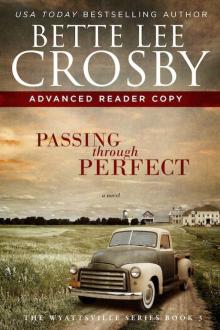 Passing Through Perfect
Passing Through Perfect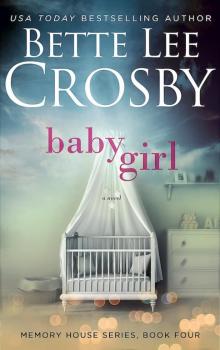 Baby Girl
Baby Girl Jubilee's Journey
Jubilee's Journey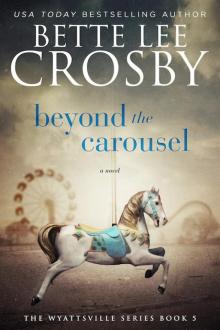 Beyond the Carousel
Beyond the Carousel What the Heart Remembers
What the Heart Remembers Cupid's Christmas
Cupid's Christmas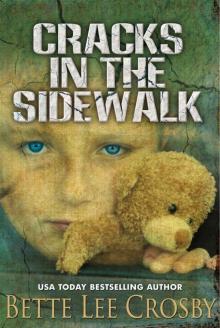 Cracks in the Sidewalk
Cracks in the Sidewalk Blueberry Hill
Blueberry Hill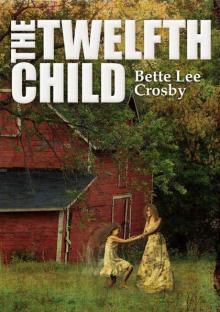 The Twelfth Child
The Twelfth Child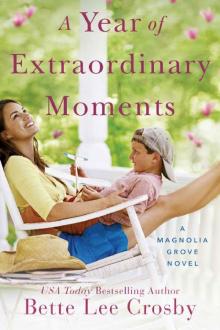 A Year of Extraordinary Moments (A Magnolia Grove Novel)
A Year of Extraordinary Moments (A Magnolia Grove Novel)